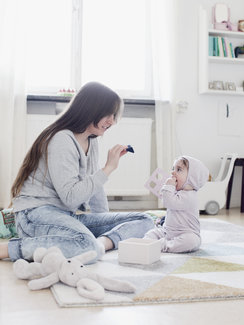

Displaying 111 - 120 of 237
This report from the German Youth Institute (Deutsches Jugendinstitut e.V., DJI) assesses the adoption system in the Netherlands.
This paper presents different instruments for the assessment of child abuse in families with parental mental illness.
This research explores how decision-making heuristics are used by practitioners to determine which foster family is the best fit for a child.
This paper focuses on the longitudinal examination of perceived reactive attachment disorder (RAD) symptoms and indiscriminate, insecure and pseudomature behavior in foster children, many of them having experienced maltreatment and neglect in the family of origin.
The aim of this study was to examine changes in parental empowerment and child behavioural problems during a period of youth care and how changes are related to the kind of services provided.
For this study, ten multilevel meta-analyses were performed to examine factors that can affect instability of foster care placement.
The present study describes how two youth care organizations in the Netherlands implemented group climate monitoring instruments for children as part of the broader ‘You Matter!’ project, and aims to answer the question how these monitoring instruments can help to improve group climate when routinely embedded in daily care.
In this study, concept mapping was used to identify the needs of nonkinship foster parents from Caucasian ethnicity who care for unaccompanied refugee minors (URM) in Flanders (Dutch speaking part of Belgium).
The present study examined the effectiveness of Family Group Conferencing (FGC) in child welfare.
This paper focuses on youngsters’ experiences of continuity in relation to youth-care services.

